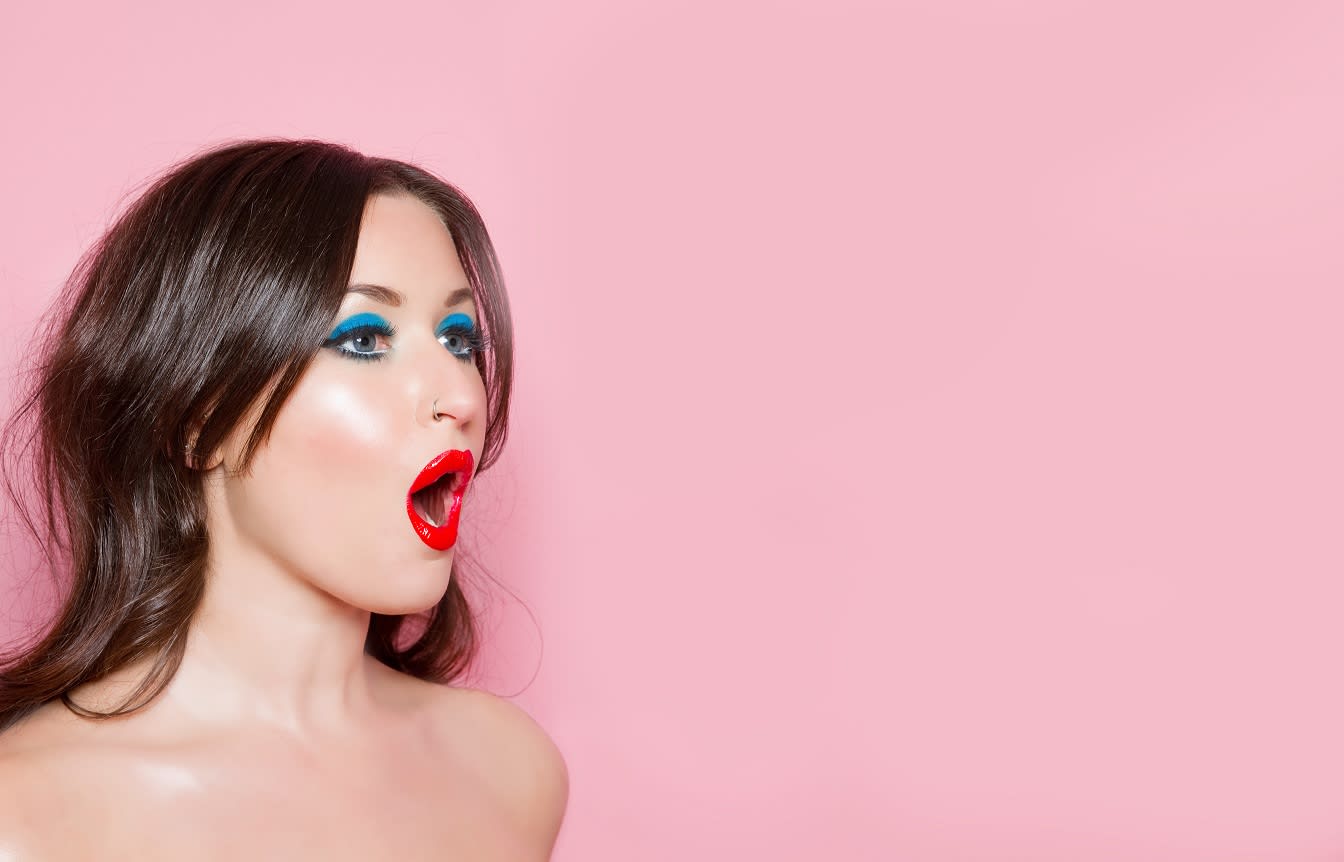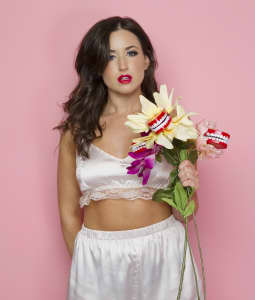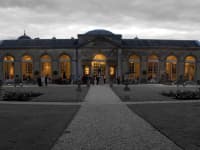Following her previous shows, Pretty Ugly and A Girl & A Gun causing quite a stir, Louise Orwin returns to stage with the bold, risky and taboo-breaking Oh Yes Oh No, in which she tackles difficult and often uncomfortable topics, with the help of Barbie and Ken, audience participation and real-life interviews. We managed to catch Louise just before her flight back from Portugal where she was touring, to discuss her much-needed workshops, the #MeToo movement and the Oh Yes’s and the Oh No’s behind the making of the show.
What led you to the name of the show?
Weirdly enough the name came to me before anything else. It was one of those things where, as the show became clearer and clearer to me, I realised that the actual content of the show spoke to this name that I had picked out of a hat or had just plucked from my brain. It seems to make so much sense now because it’s about positive and negative experiences of your own sexuality and how you can hold space for those things in your brain, in your social life or in your experiences, at the same time.
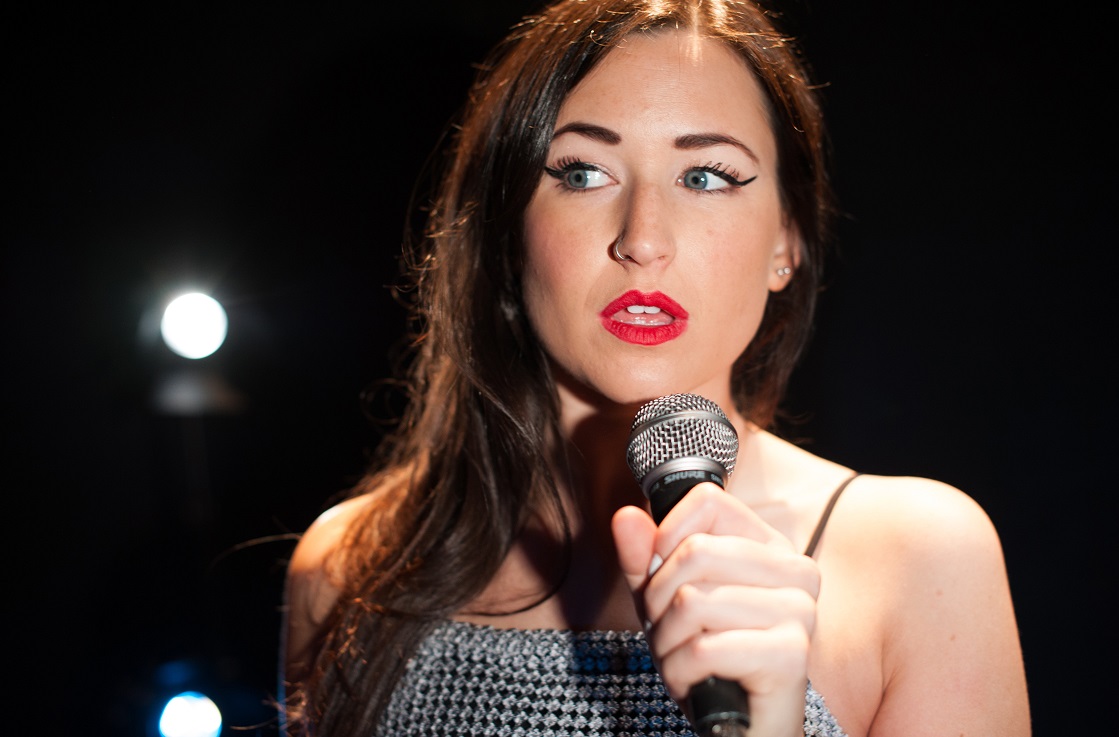
This show comes after a couple you’ve done with the same themes, is it a similar style to your first ones, or completely new territory for you?
I would say all my work is a development from previous shows, so I feel like this is the third in a trilogy around pop culture versions of femininity and violence. It’s definitely territory that I've explored before, but it feels like a crystallization of previous thinking. For the first time in ages I'm saying the thing that I want to say, which feels nice. More than my previous shows, though, this felt like it was a question that I had tried to form around my own personal experience. When I first started making the work I had this question and wanted to know whether other people had the same one, so that kind of led me on this journey and from that moment I then began interviewing a lot of people about their own experiences, their sexuality and their desire and then I found that actually loads of the people that I spoke to had similar experiences or similar questions.
The show features the Barbie and Ken dolls to orchestrate the narrative, what was the reason for using them specifically?
The show deals with stereotypes of highly gendered sexual experiences, and so Barbie and Ken just seemed like the most obvious things because not only do the figures say so much about gender stereotypes, but it also speaks to the fact that these are the figures that we grow up with. Everyone has that moment where they first undress their Barbie and Ken, and make them do things to each other, so it seems like a really nice way to talk about the conditioning that we receive around our sexuality at such an early age. And then there are other connotations which people have spoken to me about. How, often, survivors of sexual violence, if you're a child and you've had those experiences, then you're given dolls to act out what happened. So, it worked on quite a few levels.
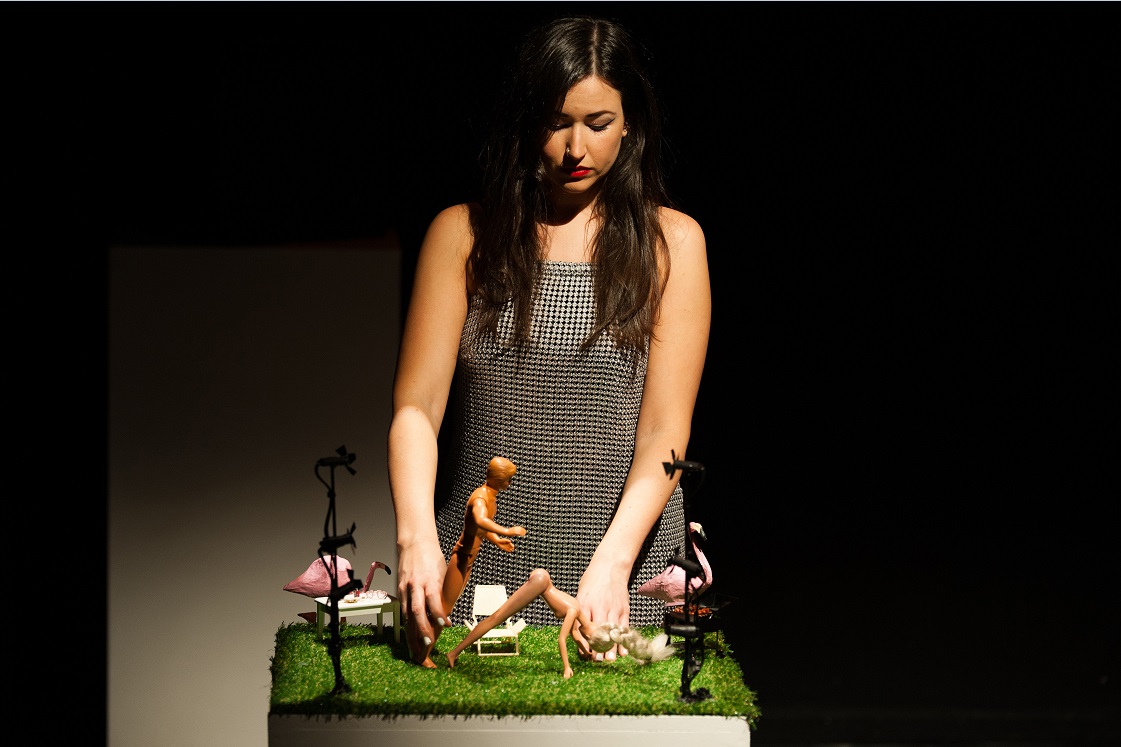
Was the show influenced by the #MeToo movement?
Well, it’s interesting because I started making this show pre-#MeToo. It was midway in the making of it that #MeToo happened, so I guess that really spurred me on. The show asks quite a lot of uncomfortable questions about sexuality and desire, and so in many ways it was an uncomfortable process to go on. I know that it could potentially be quite an uncomfortable experience for the audience, because it’s asking such difficult questions, but I think now more than ever, in the wake of #MeToo, it feels like we're really sticking with that experience of difficulty or that discomfort more.
Have you hit any bumps with the involvement of audience participation?
Yeah definitely. But for me that's kind of the point. It’s about opening up about a question which I want audiences to discover with me rather than finding a topic to teach people, so bringing audiences directly into the show feels like a really good way of doing that. In this show in particular, I was talking about consent and having sex with strangers and all these kind of things, so having someone get up on stage and act out sexual experiences with Barbie and Ken with you, obviously sometimes that goes really well and sometimes it doesn't at all but that's a really nice way to look at how those experiences work in real life.
The show worked off interviews of real women talking about the topic. Did you find it difficult to find people who were willing enough to open up about it?
No not at all actually, which is maybe quite surprising to some. I decided that I wanted to interview survivors of sexual violence like me, and I had a contact at Women's Aid who then gave me a contact of someone at Rape Crisis, so actually we sent out callouts through both of those places. I was surprised at the number of people who came back wanting to talk about their experiences, so it wasn't difficult at all.
Did these interviews teach you anything, about women or the society we live in?
I definitely found, in a really nice way – well nice or negative actually depending on how you look at it – that the sort of neuroses that I had around my own desires were being experienced by other people as well. I guess it occurred to me more and more as the interviewing process went on, that maybe people who have had the negative experiences or have felt disempowered, are the ones who want to speak about it the most. And I found that for quite a lot of those interview candidates, that experience was quite empowering. I think one of the things that became clearer and clearer to me was that we don't have spaces to talk about our desire and sexuality in transparent and clear terms. It really made me reflect on the kind of conversations that I'd had about my sexual experiences, my sexuality or my desire, which had been half-caught conversations in bars, or when you're a bit drunk, or whispered conversations in toilet cubicles, all those sort of places where it feels a bit illicit, but I'd never been given a space to sit down with other people and talk about my experiences. Around the same time as the interviews, I started doing workshops as well and these workshops were basically, providing a space, a discursive forum for people to talk about their sexual experiences and the feedback that I've had back from those workshops has been incredible, not just like "Wow I didn’t realise I needed this so badly." It was also people feeling more empowered in their sex lives, I've even had people come out in those workshops – loads of pretty amazing life-changing things. It’s pretty amazing that something so simple can be so effective.
Did you ever feel quite vulnerable about how open the show requires you to be?
Yeah definitely. I've always made work that's in some way putting myself at risk, but with this one I definitely felt hugely vulnerable. It's been an interesting process actually for me and my production team, because I've definitely had to put things in place which I haven't had to with previous shows. I've been lucky enough to have the Arts Council sponsor me to be able to work with a therapist on this show, not only on my own mental health but also on the pastoral care of the audiences who come to see the show, and my production team as well because it's heavy stuff to be dealing with on a nightly basis. That's been really amazing for my practice in general as an artist.
Because the show is all about reclaiming your sexuality and your voice, would you say it’s more of a long-term work in progress, or would you say that you’ve achieved that?
I think any survivor of sexual violence would say that it’s a long-term project. You're always in recovery from those sorts of experiences. I will say that doing this show has made that process a little bit easier, not only because it’s helped me understand my sexuality better, but also meeting people, not just those that I interviewed who had similar experiences, but also it's the kind of show that people don't just want to talk about in the bar afterwards. I get sent emails and DMs on Twitter and loads of private messages because it just seems to ignite people’s interior world, and I think that's really lovely to feel that you're not alone, if that's not too cheesy.
Oh Yes Oh No will be coming to Oxford’s Burton Taylor Studio 9 October.

